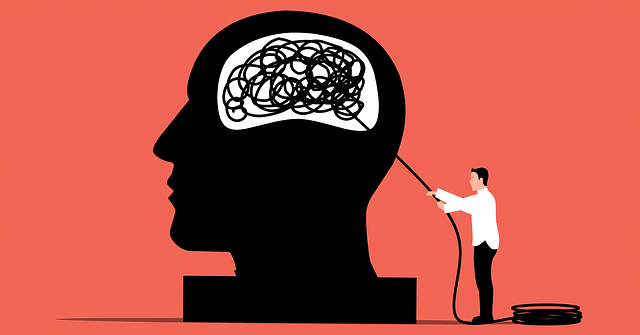Gabapentin is a medication primarily used to treat nerve pain (neuropathic pain) and seizures – but it’s sometimes prescribed off-label for anxiety, insomnia, substance use disorder, alcohol withdrawal, and bipolar disorder.
Although gabapentin can be a therapeutic and effective medication, not everyone needs it forever and/or can tolerate it – such that many eventually discontinue the medication.
Upon discontinuation, some people may experience gabapentin withdrawal symptoms or discontinuation effects that:
- Emerge while titrating the dose downward (i.e. “weaning off”)
- Emerge acutely after complete cessation (no more use)
- Linger for a long-term (or longer than expected) after cessation
I used gabapentin for about 6 months to manage sciatica-related nerve pain and it helped take the edge off so that I could cope with the pain & survive the day – but I eventually stopped it for a variety of reasons (brain fog, drunken perception, weight gain, etc.).
Does gabapentin cause withdrawal symptoms?
In many cases, yes. There are many anecdotes AND clinical case reports of gabapentin withdrawal symptoms emerging in the aftermath of gabapentin cessation.
For this reason, it’s logical to assume that a subset of gabapentin users are affected by gabapentin withdrawal symptoms (varying in intensity & duration).
Because no 2 gabapentin users are identical, it’s important to avoid assuming that everyone reacts similarly in withdrawal… some may experience no withdrawal reactions whereas others may experience harsh symptoms.
Gabapentin withdrawal symptoms
Listed below are some common gabapentin withdrawal symptoms – according to researchers & former gabapentin users (anecdotes). (R1, R2, R3)

Understand that because “gabapentin withdrawal” hasn’t been extensively researched, there’s no formal scientific consensus of the most common symptoms.
Common reactions
Agitation: Reported in over 50% of medically-documented gabapentin withdrawal “case reports.” This was the single most common withdrawal symptom and is characterized as a state of internal anxiety or nervous excitement.
Confusion & disorientation: Approximately 45% of medically-documented gabapentin withdrawal “case reports” experienced mental confusion or disorientation. This may be characterized by inability to think clearly & remember things and being unable to make sense of reality.
Sweating: Diaphoresis was estimated to occur in ~36% of gabapentin withdrawal cases. If you notice your body sweating more than usual after stopping gabapentin, know that this reaction is relatively common.
GI symptoms: Around 23% of individuals experience “non-specific” gastrointestinal reactions such as: loose stools, diarrhea, abnormal bowel movements, constipation, stomach pains, etc. – after stopping gabapentin.
Tremor: An estimated 18% of individuals experience tremor (involuntary quivering movement or “shakes”) during gabapentin withdrawal. Tremor is generally due to abnormal activation in parts of the brain associated with movement control.
Tachycardia: Approximately 18% of individuals experience tachycardia (rapid heart rate, usually over 100 bpm) while stopping gabapentin. This may be accompanied by anxiety, palpitations, and an increase in stimulatory neurotransmitters following gabapentin stoppage.
Hypertension: An estimated 18% of individuals experience hypertension (high blood pressure) upon discontinuation of gabapentin. Because this reaction can be dangerous, it is recommended to work with a doctor to manage blood pressure in withdrawal.
Insomnia & sleep disturbances: Nearly 14% of individuals experience insomnia and/or other sleep disturbances after stopping gabapentin. This is characterized by difficulty falling asleep and/or staying asleep – or a massive decline in sleep quality.
Rebound symptoms: Many people may experience “rebound symptoms” of the medical condition(s) for which gabapentin was prescribed to treat. Obviously if gabapentin is helping manage something like neuropathic pain and you stop it, the neuropathic pain will return. (R)
Other reactions
Below are other reactions that occur during gabapentin withdrawal at unknown rates. (R)
Depression & mood swings: Some people may experience depression (perhaps severe) or mood swings (feeling decent, then depressed, then angry, etc.) during withdrawal. Mood fluctuations are thought to occur from neurochemistry readjustment during drug cessation.
Anxiety & nervousness: Gabapentin is a medication that generally induces sedation and an anxiolytic effect – mostly because it inhibits excitatory neurotransmitters. When the drug is stopped, excitatory neurotransmitter activity may spike and cause anxiety/nervousness.
Flu-like symptoms: These include chills, headache, muscle or body aches, fatigue, nausea, vomiting, diarrhea, and/or other GI reactions.
Slurred speech: Case reports have documented “slurred speech” (unclear vocalizations) in some individuals who discontinue gabapentin.
Appetite changes: Shifts in appetite have been reported after discontinuing gabapentin – but vary depending on the person. Some report feeling less hunger than usual, whereas others report food cravings and desire to eat more.
Brain fog & cognitive deficits: Inability to focus (attention deficits), disorganized or chaotic thinking, memory lapses, etc. – have all been reported during gabapentin withdrawal.
Headache & migraine: Some may experience a series of headaches and/or migraines during gabapentin discontinuation.
Palpitations & irregular heart beat: Feelings of having a fast-beating, fluttering, or pounding heart (palpitations) or irregular heart beat – may occur while stopping gabapentin.
Restlessness, RLS, jitters: Restlessness, restless leg syndrome (RLS), and jitteriness have all been mentioned as possible withdrawal symptoms from gabapentin.
Fatigue & exhaustion: Although gabapentin can cause fatigue as a side effect, some people experience significant tiredness, sleepiness, or exhaustion during withdrawal too.
Dizziness & vertigo: Feeling dizzy or a spinning sensation (vertigo) have been reported in anecdotes of gabapentin withdrawal.
Altered mental status: Some may report feeling mentally out-of-sorts or “atypical” during gabapentin withdrawal. If you don’t feel like your usual self, it’s because your neurochemistry is undergoing adjustment.
Depersonalization & derealization: Withdrawal from any psych med can cause changes in brain chemistry that lead to a sense of depersonalization and/or derealization.
Irritability: Quick excitability to annoyance, impatience, or anger sum up irritability. Some may have difficulty socializing because the withdrawal makes them ridiculously irritable.
Sensitivity to noise & light: Some have reported increased sensitivity to auditory & visual stimuli during gabapentin withdrawal – such that noise reduction & sunglasses are necessary.
Rare reactions
Akathisia: A state of agitation, distress, and restlessness (inability to sit still) associated with muscle quivering. This rare adverse withdrawal reaction was documented in a case report (76-year-old female with type 2 diabetes) after stopping 3600 mg/day for 1 month. (R)
Catatonia: A behavioral syndrome marked by an inability to move normally despite full physical capacity to do so. Probably not very common, but documented in a case report. The patient exhibited complete immobility, staring, rigidity, refused to eat/drink, etc. within 48 hours of gabapentin cessation. (R)
Hallucinations: Case reports have mentioned “hallucinations” as rare adverse reactions to gabapentin withdrawal. Hallucinations may emerge due to changes in neurochemistry coupled with the stress of withdrawal – and should be managed by a medical doctor.
Seizures: FDA access data for gabapentin suggests that seizures may occur during withdrawal in rare cases. If a seizure occurs while stopping gabapentin, emergency medical care is recommended. (R)
Note: Although the phenomenon of “gabapentin withdrawal” hasn’t been extensively studied, don’t assume that lack of evidence means that it rarely occurs.
Why does gabapentin withdrawal occur?
It’s relatively easy to explain why gabapentin withdrawal occurs: body adjusts to drug’s influence, body readjusts to functioning without drug.

Physiology adjusts to gabapentin: With consistent use of gabapentin, one’s physiology (e.g. brain chemistry, ANS, etc.) adapts to its regular presence and effect (mechanisms of action).
Physiology reverts back to homeostasis: Upon complete stoppage of gabapentin, physiology (e.g. brain chemistry, ANS, etc.) transitions back to pre-gabapentin functioning.
During the transition from: (1) gabapentin-adjusted physiology to (2) zero-gabapentin (homeostasis) physiology – neurotransmitters, receptor densities, brain activation, etc. are recalibrating – and this induces withdrawal symptoms.
Once physiology has reverted back to homeostatic baseline (zero-gabapentin adaptations), the withdrawal symptoms stop.
How long does gabapentin stay in your system?
Gabapentin has a half-life of 5-7 hours (~6.5 hours) in healthy adults with normal kidney function. (R)
Variables such as: age, body weight, body composition, liver & kidney function, dosage, other medications, etc. – all affect its half-life to some extent.
Based on the 5-7 hour half-life for gabapentin, we can estimate that it’ll take 27.5-38.5 hours (1.15-1.6 days) to eliminate the drug from your body or “system” if healthy.
Elimination of the drug from one’s system does NOT mean that withdrawal is over… it means that true withdrawal is just beginning – as gabapentin-adapted physiology needs to recalibrate back to gabapentin-free homeostasis (which causes symptoms).
When do gabapentin withdrawal symptoms start?
According to some experts, gabapentin withdrawal symptoms can emerge within 12 hours to 7 days after discontinuation. (R)
A majority of evidence suggests that withdrawal symptoms emerge, on average, between 24 and 48 hours after completely stopping gabapentin.
So basically, if you’re a high-dose & long-term gabapentin user who decides to stop the drug, you’ll probably notice withdrawal reactions that start within the first week (usually within the first few days) of discontinuation.
How long does gabapentin withdrawal last?
Depends on the specific user.

Variables like: duration of gabapentin use, dosage, tapering rate, user genetics, other medications used, supplements used, lifestyle (diet, sleep, exercise), etc. – all may impact the length of gabapentin withdrawal.
For high-dose/long-term gabapentin users, the withdrawal process is generally longer than for low-dose/short-term gabapentin users.
Anecdotes claim that gabapentin withdrawal symptoms peak in severity within the first 1-2 weeks following discontinuation – becoming easier to manage thereafter.
Online reports suggest that gabapentin withdrawal symptoms may linger for 1-3+ months – particularly in long-term/high-dose users, but lifestyle interventions & supplements may make them more manageable.
That said, it’s best to avoid getting overly invested in others’ withdrawal experiences – as there can be massive differences between users (e.g. didn’t notice anything vs. 3-6 months of battling).
Why do people withdraw from gabapentin?
There are a variety of reasons as to why someone might want to withdraw from gabapentin.
Some may find gabapentin unhelpful in treating medical conditions for which it was prescribed.
Others may find that the side effects of gabapentin (e.g. brain fog, weight gain, etc.) are too difficult to cope with – such that they outweigh its therapeutic effect in a cost-benefit analysis.
And others may recover from a condition for which gabapentin was helping treat (e.g. neuropathic pain) – such that they no longer need the medication.
Things that impact gabapentin withdrawal
There are many variables that have potential to influence the: severity AND duration of gabapentin withdrawal.
It is thought that long-term & high-dose gabapentin users generally have a more challenging set of withdrawal symptoms and a longer-lasting withdrawal period than short-term & low-dose users.
Gabapentin dosage
Technically any dose of gabapentin, when used regularly, can yield withdrawal symptoms following cessation – case reports have documented withdrawal reactions ranging from 400 mg/day to 8000 mg/day. (R)
That said, higher doses tend to alter physiology to a greater degree than lower doses – so withdrawal symptoms tend to be more pronounced & longer-lasting among high-dose users (relative to low-dose users).
A majority of serious gabapentin withdrawal reactions are documented in patients taking doses above 3000 mg/day. (R)
Rate of tapering (or cold turkey)
Experts suggest that it’s smartest to gradually taper off of gabapentin, (reduce its dosage over a period of weeks or months) to minimize withdrawal severity – particularly for high-dose & long-term users.
Deng et al. (2021) noted that one patient required an 18-month taper to successfully discontinue gabapentin. (R)
One paper noted that 75% of serious withdrawal reactions to gabapentin were associated with abrupt or “cold turkey” discontinuation (wherein the drug is suddenly stopped with zero taper).
A gradual taper helps shift physiology closer to gabapentin-free homeostasis (neurotransmitter production, receptor densities, neural pathway activity, etc.) before gabapentin is fully discontinued.
Why is this beneficial? Because there’s a less significant gap to bridge from gabapentin-adapted physiology to gabapentin-free homeostasis – such that when gabapentin is finally stopped, withdrawal reactions tend to be less pronounced & shorter-lived.
As researchers have noted, tapering off of gabapentin slowly does NOT guarantee that withdrawal symptoms won’t occur – it just reduces likelihood of severe & medically-serious discontinuation reactions. (R)
Note: If withdrawal symptoms are serious or unbearable, most evidence suggests that reinitiation of gabapentin rapidly resolves symptoms (within 24-72 hours).
Duration of use
Experts suggest that withdrawal from gabapentin can occur even when used for a relatively short-term (3 weeks). (R)
However, most agree that longer-term gabapentin users (months to years) are more likely to experience withdrawal symptoms than short-term (days to weeks) users.
This is because long-term use may cause more pronounced physiological adaptation to the drug and/or be associated with higher-dose administration (perhaps due to tolerance).
User-specific factors
It is thought that specific factors related to each individual gabapentin user may modify risk, duration, and/or severity of gabapentin withdrawal.
Medical conditions: Preexisting medical conditions might make withdrawing from gabapentin more difficult than others or lack of preexisting conditions.
Genetics: Certain people may have gene combinations that make gabapentin withdrawal easier OR harsher than others.
Lifestyle: A person’s lifestyle (diet, sleep, exercise, social, stress) may impact the severity of gabapentin withdrawal. A healthy lifestyle may counteract withdrawal symptoms better than an unhealthy one.
Other substances: Use of other drugs (e.g. similar prescriptions to gabapentin) or supplements might prevent gabapentin withdrawal symptoms from occurring or becoming problematic.
Best practices in gabapentin withdrawal
Included below are some general recommendations to consider employing for the management of gabapentin withdrawal.
Work with a medical doctor
It is recommended to work with a medical doctor while stopping gabapentin.
A doctor can help you come up with a tapering strategy and treat any debilitating symptoms that arise during/after discontinuation.
Always report severe reactions to a medical doctor – as some could be life-threatening.
Taper slowly (if necessary)
Experts recommend gradually tapering off of gabapentin to minimize the severity of withdrawal symptoms. (R)
The NHS provides an example tapering protocol for discontinuing gabapentin, but the basic idea is to decrease the dosage slightly each week.
Tapering example (1800 mg/day user)
- Week 1: 600 mg (AM), 300 mg (noon), 600 mg (PM)
- Week 2: 300 mg (AM), 300 mg (noon), 600 mg (PM)
- Week 3: 300 mg (AM), 300 mg (noon), 300 mg (PM)
- Week 4: 200 mg (AM), 200 mg (noon), 200 mg (PM)
- Week 5: 100 mg (AM), 100 mg (noon), 100 mg (PM)
- Week 6: 100 mg (AM), 100 mg (PM)
- Week 7: Stop & review patient
Some patients may be able to handle a rapid taper or even “cold turkey” discontinuation without issue.
Others may require an extremely gradual taper (e.g. 10% dose reduction each month) due to heightened withdrawal sensitivity.
Healthy lifestyle
You can’t change your genetics or age, but you can always put forth effort to live as healthily as possible during gabapentin withdrawal.
Consuming a healthy diet, following a normal sleep-wake cycle, managing stress, leaning on friends/family for social support, and exercising regularly may mitigate some withdrawal symptoms.
Supplements for gabapentin withdrawal
Below are some supplements that might help during gabapentin withdrawal – no guarantees.

Confirm safety with a medical doctor before using – these may not be safe for everyone.
Also don’t “stack” all of these unless considered safe by a medical doctor – they may interact.
- Omega-3 fatty acids: May support healthy brain activity during withdrawal.
- Magnesium threonate: May counteract stress during withdrawal.
- GABA: Unclear if actually does anything. May help with stress/anxiety.
- Taurine: May help with stress/anxiety.
- Chamomile extract: May help with stress/anxiety.
- L-Theanine: May address stress/anxiety.
- Vitamin C: May support brain function & immune system.
- Vitamin D3: May support brain function & immune system.
- NAC: May improve cognition, mood, and anxiety in withdrawal.
- PQQ: May provide cognitive, sleep, and physiological support in withdrawal.
- Prebiotics: May help maintain healthy gut bacteria in withdrawal.
- Probiotics: May help maintain healthy gut bacteria during withdrawal.
- Multivitamin: May help ensure adequate micronutrients during withdrawal.
- Caffeine (morning): May help address brain fog and cognitive deficits. (Avoid if prone to anxiety – don’t exceed safe dosages.)
- Melatonin (before bed): May help counteract insomnia and improve sleep.
Note: Affiliate links are used for these supplements… I earn a commission if you buy through me. I’d appreciate it if you do (the cost is the same either way).
My experience with Gabapentin withdrawal…
Backstory: Used gabapentin for ~6 months to manage sciatic nerve pain from a herniated disc in lumbar spine. Never exceeded 900 mg per day (don’t think I would’ve been able to function at anything higher).
I found gabapentin withdrawal to be relatively benign – such that I’m not sure whether I experienced any major “withdrawal symptoms” – and this could’ve been due to the relatively low dosage administered (<900 mg/day).
While on gabapentin, I experienced a variety of side effects:
- Lower anxiety & rumination (obsessive thinking)
- Higher quality sleep (subjective)
- Emotional blunting (not in a bad way)
- Fatigue (way lower energy level)
- Lower libido (sex drive)
- Altered thought patterns
- Brain fog (cognitive impairment)
- Motivational deficits (lazy, Type B personality)
None of these effects were debilitating, but the most problematic was probably brain fog or cognitive impairment (I felt unfocused & semi-drunk at times).
After stopping gabapentin, I noticed: (1) fading of many side effects AND (2) lingering of certain side effects (after the drug would’ve left my system).
Most gabapentin side effects significantly diminished within 1 week of stopping the drug – including: the anxiolytic effect, fatigue, emotional blunting, lower libido, brain fog, etc.
This meant that I experienced normal levels of anxiety (rather than reduced), higher energy, more natural emotions, higher libido, and clearer thinking within 1 week of stopping gabapentin – probably because the drug was eliminated from my body.
I was using a variety of supplements including: high-dose melatonin (PM), taurine, vitamin C, vitamin D3, caffeine (AM), magnesium, calcium, L-theanine (randomly), fish oil, probiotics – and exercising outside daily – but this was the norm for me even while on gabapentin.
Around 2 weeks after gabapentin cessation, I felt as though the “withdrawal” was mostly over (felt ~90% back to normal) with a few lingering symptoms: altered thought patterns, brain fog, and feeling “emotionally” out-of-sorts (like a mild depression, nothing serious) – but these were really mild.
I suspect that, in my case, a couple of things may have contributed to a favorable gabapentin withdrawal experience: (1) low-dose use (I wasn’t on a high dose), (2) supplement use (may have helped), and (3) daily routine (work, exercise, etc.).
Because I had such a good experience overall with gabapentin, I personally would not hesitate to use it in the future if I wanted and/or needed it to help with a medical condition – but this is just my experience (others probably feel differently).
Have you experienced gabapentin withdrawal?
Have you experienced gabapentin withdrawal? (How long did it last?)
How fast did you taper off of gabapentin? (Or did you even bother tapering?)
What dosage of gabapentin did you take & for how long did you take it?
What were your gabapentin withdrawal symptoms? (Which were the worst?)
Would you use gabapentin again knowing about the withdrawal?
